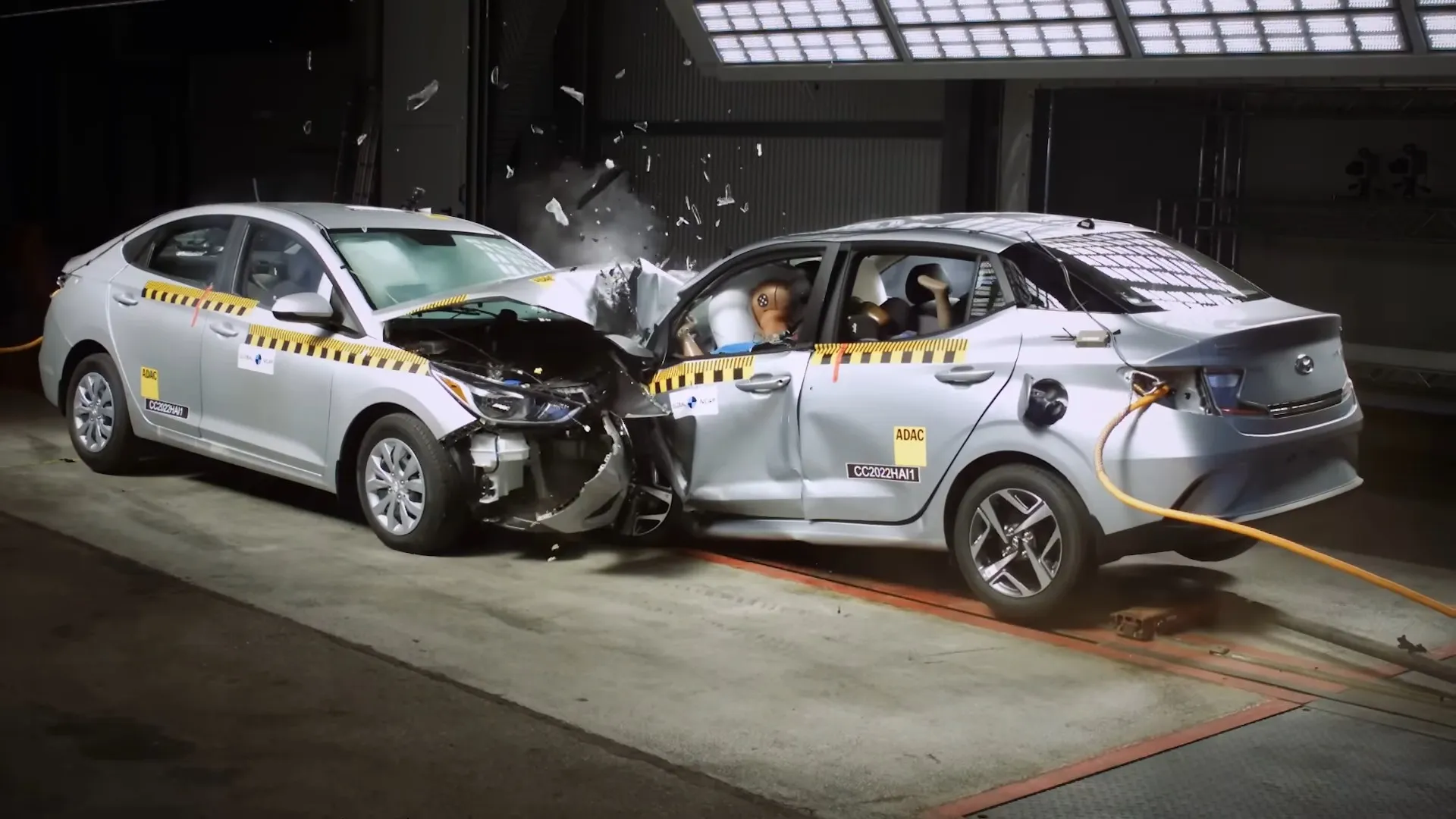ANSI C18.2M EV Battery Safety Crash Test
The ANSI C18.2M standard represents a critical benchmark in the automotive industry, particularly for electric vehicles (EVs) and their advanced battery systems. This test protocol is designed to evaluate the safety of lithium-ion batteries under realistic crash conditions, ensuring that they do not ignite or explode upon impact. Compliance with this standard is essential for manufacturers aiming to meet regulatory requirements and enhance public confidence in EV technology.
The ANSI C18.2M standard focuses on several key aspects: structural integrity, thermal stability, and electrical safety of the battery module during simulated crash scenarios. The test involves subjecting a representative battery pack to controlled impact forces that mimic those experienced in various types of vehicular crashes. This process evaluates not only the immediate response of the battery but also its long-term reliability post-impact.
Crash testing under ANSI C18.2M is particularly important given the growing trend towards electric mobility, where safety concerns are paramount. By adhering to this standard, manufacturers can ensure that their EV batteries meet stringent safety criteria set forth by international bodies such as the National Highway Traffic Safety Administration (NHTSA) and other regulatory entities worldwide.
The testing procedure typically involves placing a battery module within a test vehicle or a dedicated crash fixture designed to replicate real-world crash conditions. The fixture is then subjected to specified impact forces, speeds, and angles, all of which are meticulously controlled according to the ANSI C18.2M specifications. Post-test evaluations involve detailed assessments of electrical integrity, temperature changes, gas generation, and structural deformation.
One of the critical aspects of this testing methodology is its ability to simulate various crash scenarios that could occur during vehicle operation or accident situations. This includes frontal collisions at different speeds, side impacts, rollovers, and more. By covering these diverse scenarios, ANSI C18.2M provides a comprehensive evaluation of battery safety under extreme conditions.
The results of the ANSI C18.2M crash tests are crucial for identifying potential risks early in the product development cycle. This allows manufacturers to make necessary modifications and improvements before products reach the market. The data obtained from these tests can also be used to enhance public awareness about EV safety, thereby fostering trust among consumers.
In summary, compliance with ANSI C18.2M ensures that electric vehicle batteries are safe and reliable even in the most adverse crash conditions. This standard plays a vital role in advancing the technology of electric mobility while addressing critical safety concerns.
Benefits
- Enhanced public trust in EV technology through proven safety measures.
- Mitigation of risks associated with battery failure during vehicular accidents.
- Compliance with international regulatory standards, ensuring market access.
- Potential reduction in insurance premiums for vehicles that meet ANSI C18.2M criteria.
- Improved brand reputation and consumer confidence in the products being offered.
Use Cases and Application Examples
| Test Scenario | Description | Results |
|---|---|---|
| Frontal Crash at 40 km/h | Battery module subjected to a frontal crash simulation with controlled impact forces. | No signs of electrical short-circuiting or thermal runaway. Structural integrity maintained post-impact. |
| Side Impact at 35 km/h | Battery module exposed to a side impact scenario designed to simulate real-world collision conditions. | No leakage or gas generation observed during and after the test. Thermal stability demonstrated effectively. |
| Rollover Simulation | Reproduction of rollover crash scenarios to assess battery behavior under extreme conditions. | Battery remained intact, with no significant changes in electrical performance post-rollover. |
Eurolab Advantages
At Eurolab, we pride ourselves on offering comprehensive ANSI C18.2M EV battery safety crash testing services tailored to meet the highest standards of quality and reliability. Our state-of-the-art facilities provide precise control over all test parameters, ensuring accurate and reproducible results.
Our team of experienced engineers and technicians ensures that each test adheres strictly to ANSI C18.2M specifications, delivering reliable data for informed decision-making. With our advanced instrumentation and detailed reporting capabilities, we offer a holistic approach to evaluating battery safety under crash conditions.
Eurolab’s commitment to excellence extends beyond just meeting regulatory requirements; it includes providing valuable insights that can be leveraged for continuous improvement in product design and development.





